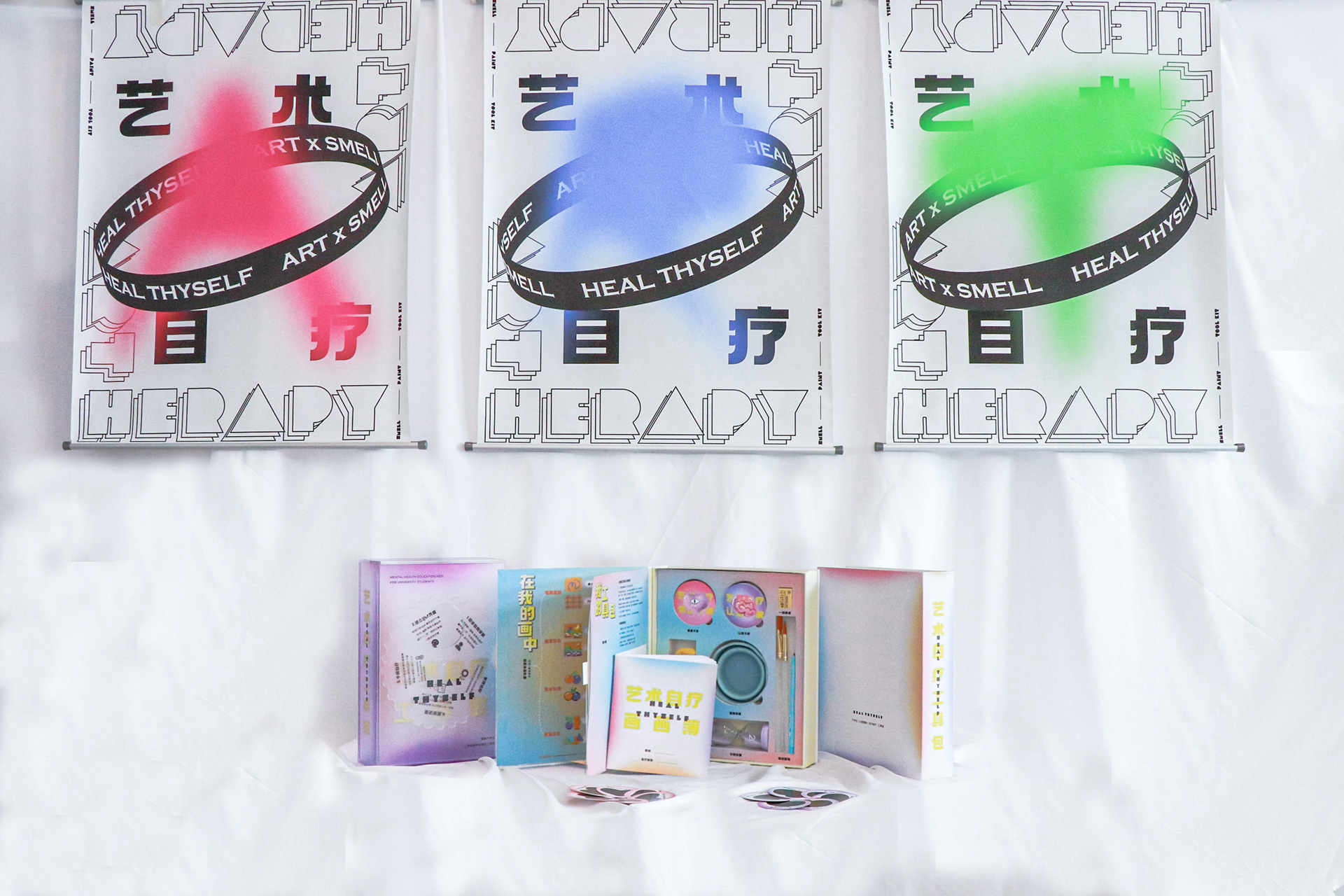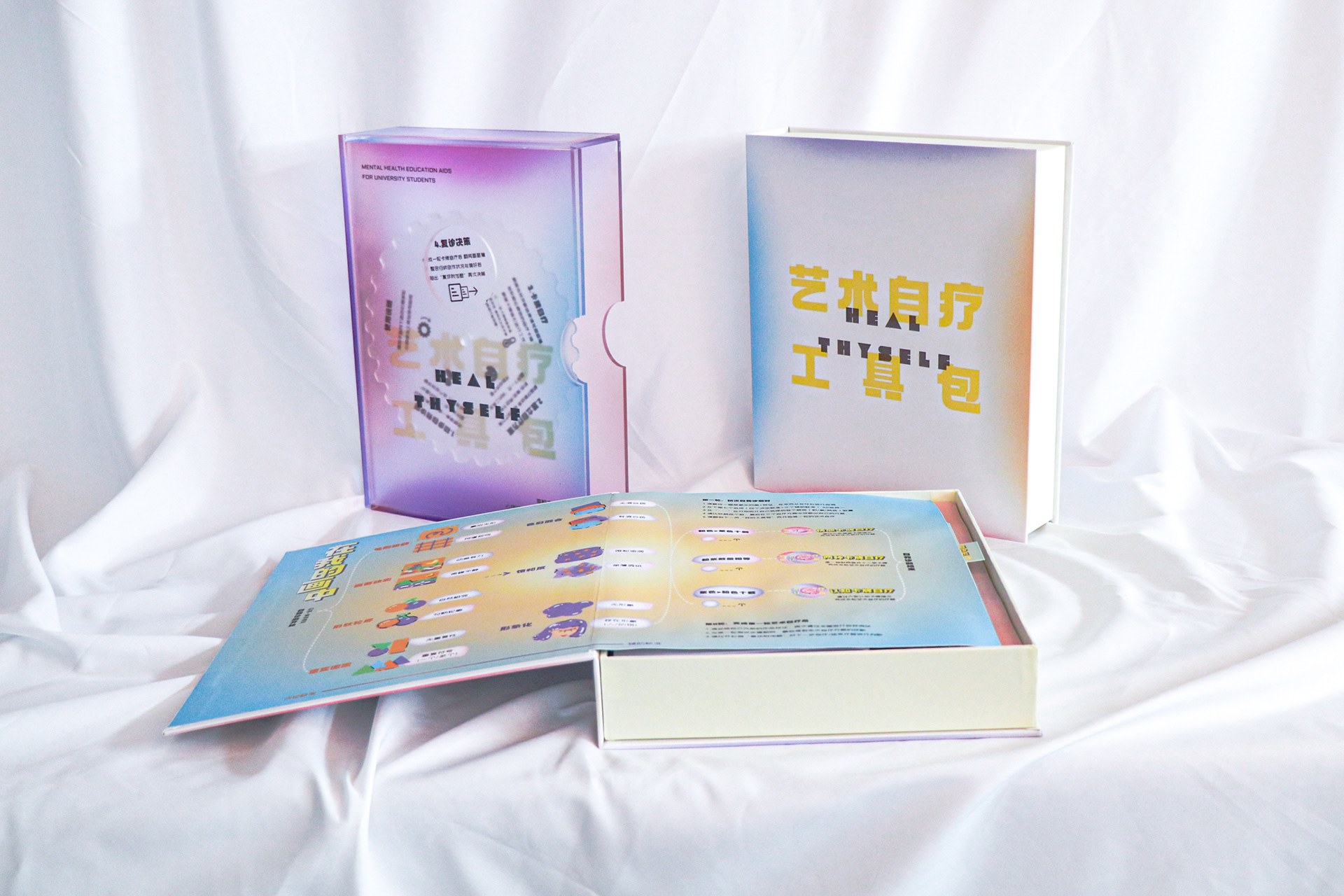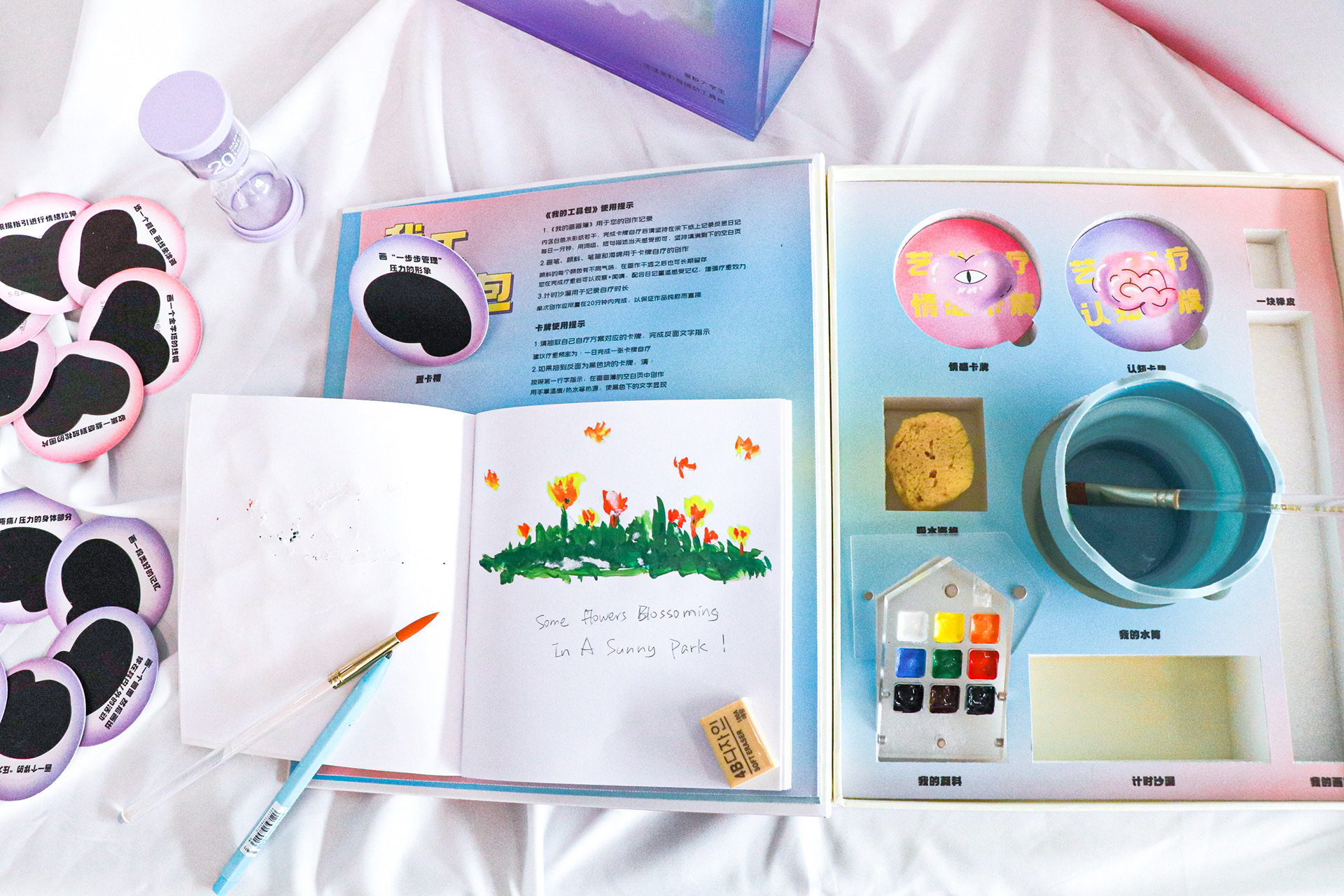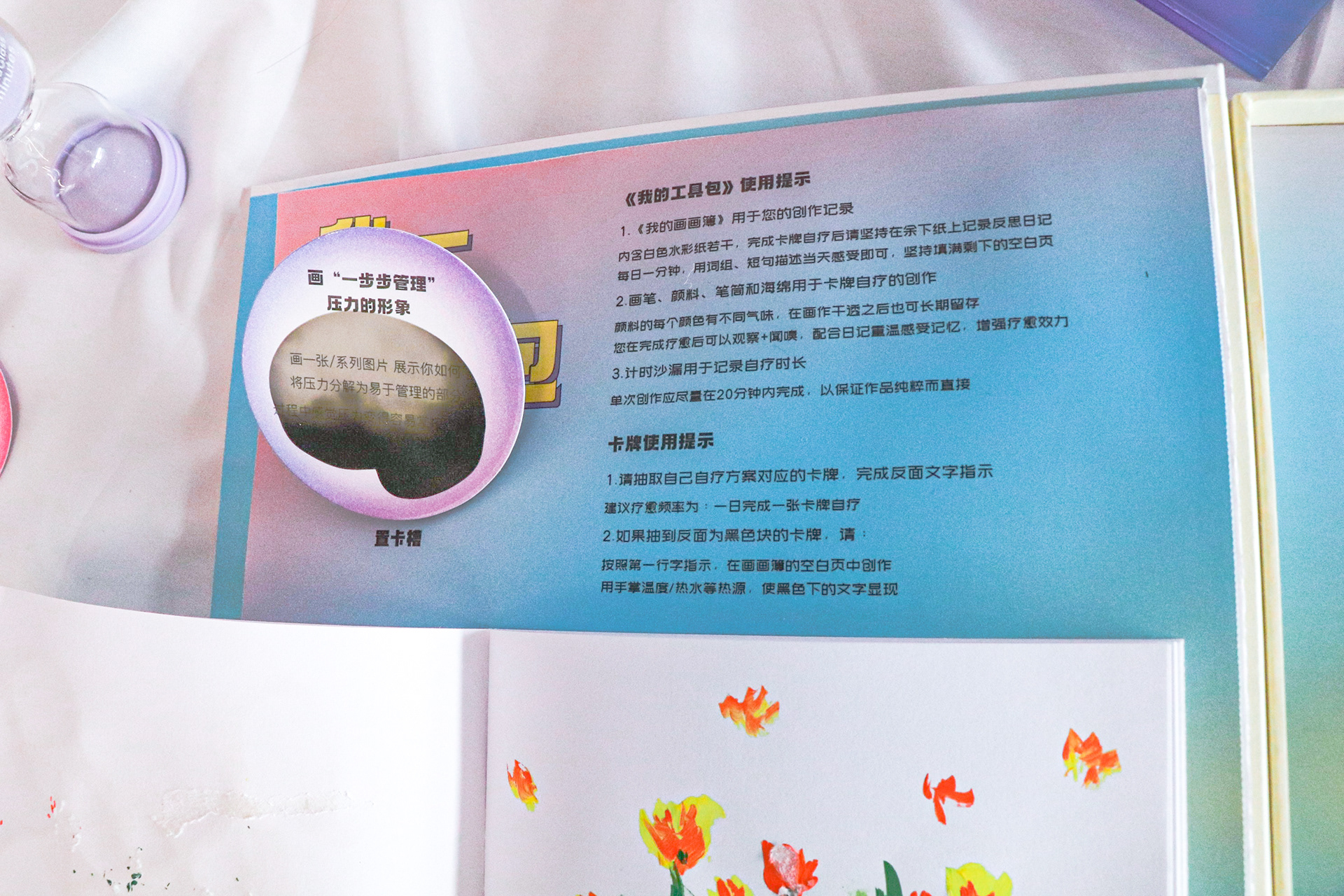The post-epidemic era refers to the time following the containment of the novel coronavirus outbreak in China.
The rampant epidemic has put people's lives and health at risk and has forced changes in behavioral patterns that have impacted people's psychological defenses. One of the groups severely affected by the epidemic is undergraduates, who have been forced to continue their studies and lives between the closure and unsealing of their schools, affecting their psychological state.
To avoid widespread psychological trauma after the epidemic, how to regulate negative emotions and improve the psychological health of undergraduates needs to be urgently considered and addressed.
I collected desk research from sorting out the theories and development overview of Art Therapy and Scent Therapy, the current situation and its outlook on the development of Art Therapy for undergraduates.
Field research was done in three dimensions: the visual practice of Art Therapy, the olfactory application of Scent Therapy and the current situation of psychological counselling in universities, to uncover pain points and open up a new way of providing self-healing solutions for undergraduates.
The social research section assessed the psychological situation of undergraduates in the post-epidemic era to assist in the design process.




At the design and output stage, the author adhered to the three elements of "applicability", "personalisation" and "accessibility". The innovative Multi-Modal Art Therapy Method combines Expressive Painting and Scent Therapy, using visual and olfactory senses to prevent potential mental problems and beautify and overwrite traumatic memories;
And to design a program based on the personal needs of the undergraduates-a visual and olfactory toolkit. It includes a self-diagnostic page developed from an assessment model and visualized as an infographic; coordinates the program's primary visual and derivative design to meet the promotional scenarios in universities online and offline.